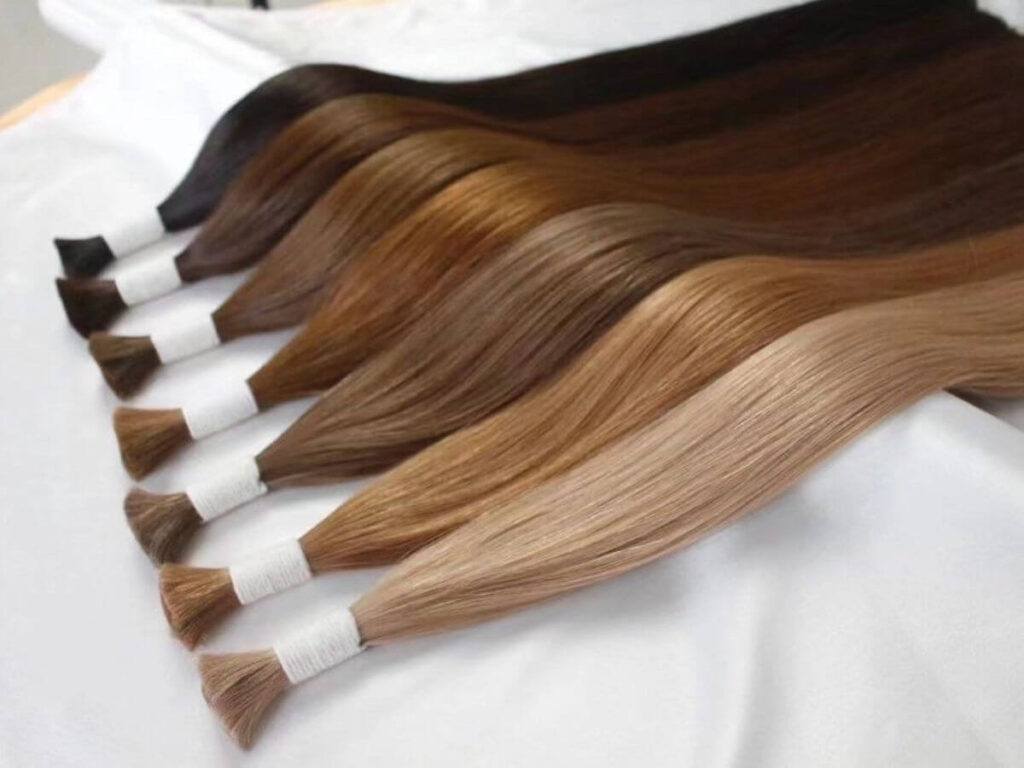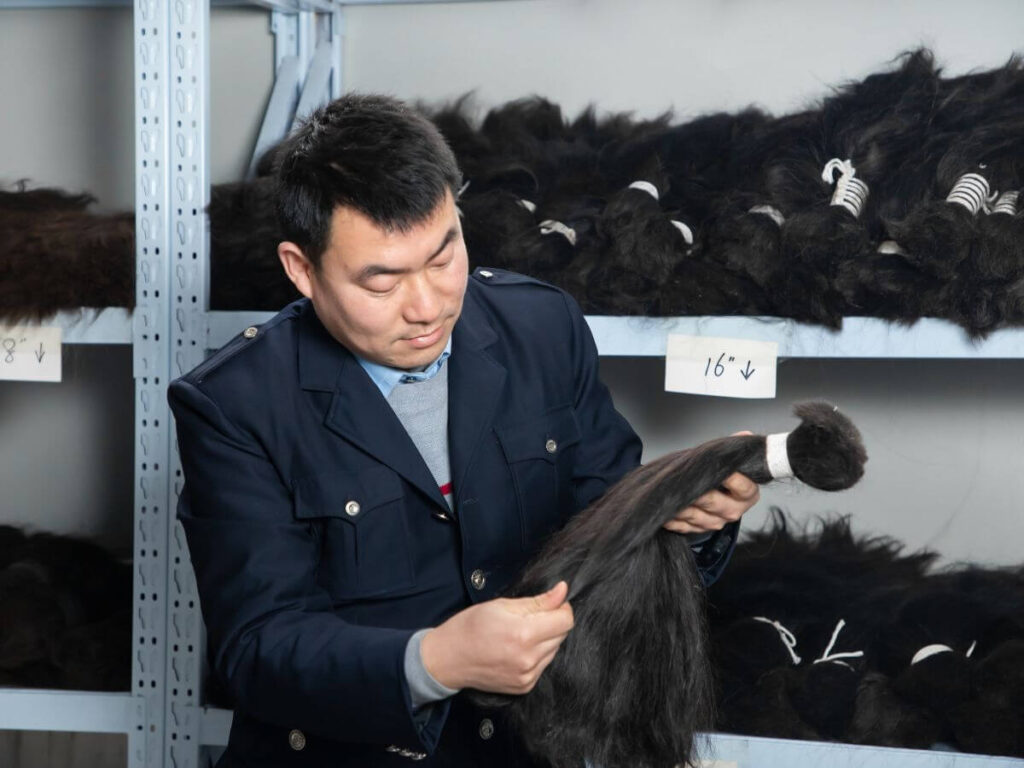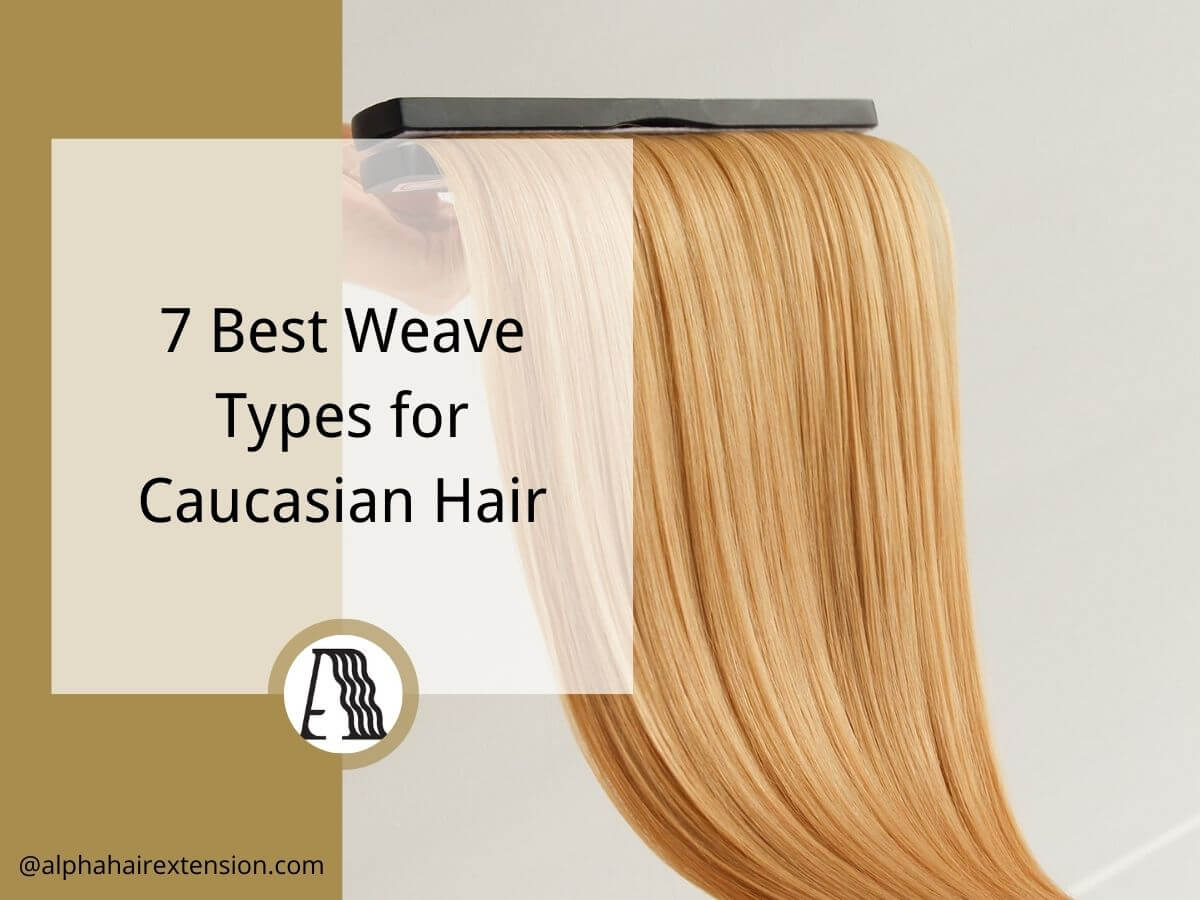You’ve seen the success stories—brands selling high-quality hair extensions and making six figures.
The truth? Most private label hair extension businesses fail before they even take off. The process is overwhelming, and one wrong move can cost you thousands.
That’s why I created this guide.
With years of experience in private label manufacturing, I’ll walk you through the step-by-step process to build a brand that stands out.
By the end of this article, you’ll have a clear blueprint—from market research to supplier selection, branding, and marketing—so you can launch with confidence.
So, let’s get started!
Step#1 Market Research and Niche Selection
Before you dive into launching your private label hair extension business, let’s talk about the market. I know it’s tempting to jump straight into product selection, but trust me—choosing the right niche is what will make you stand out and attract the right customers. Here’s how to approach it:
- Know Your Customers – Not all hair extension buyers are the same. Are you targeting salons, hairstylists, or direct-to-consumer shoppers? Defining your audience will shape everything from your product line to your marketing strategy.
- Stay on Top of Trends – Hair trends change fast. What textures, colors, and application methods are in demand right now? Understanding shifts in the market helps you stock products that customers actually want.
- Check Out the Competition – Look at what other brands are doing. Where are they succeeding? More importantly, where are they falling short? Whether it’s high-end luxury, eco-friendly sourcing, or affordability, finding your unique angle gives you a competitive edge.
- Carve Out Your Niche – Are you specializing in premium virgin hair? Synthetic extensions? Wholesale bundles for stylists? The more focused your niche, the easier it is to build a strong brand, streamline marketing, and connect with the right suppliers.

Step #2: Business Planning
If you want to build a profitable private label hair extension brand, a solid business plan isn’t just a formality—it’s your game plan. It’s what keeps you on track, from budgeting to branding and scaling your operations. Let’s break it down:
- Choose Your Business Model Wisely – Are you selling online? Partnering with salons? Going the wholesale route? The path you choose will shape everything—pricing, marketing, and logistics. Pick the one that aligns with your long-term vision and resources.
- Get Clear on Your Budget & Financial Goals – I know how easy it is to underestimate costs. Factor in product sourcing, branding, packaging, and marketing upfront. More importantly, set financial goals that make sense—not just to cover costs, but to enhance profitability and steady growth.
- Plan for Long-Term Growth – Whether it’s expanding your product line, collaborating with influencers, or breaking into new distribution channels, having a strategic growth plan will keep you ahead of the competition. Don’t wait until you’re “big enough” to think about scaling—lay the groundwork now.

Step #3: Sourcing and Supplier Selection
If you want your private label hair extension business to thrive, the quality of your products has to be top-notch—there’s no way around it. I’ve seen brands struggle because they cut corners here, and I don’t want that to happen to you. Here’s how to make sure you choose the right one:
- Do Your Homework: Not all suppliers are created equal. Look for manufacturers with a solid reputation, real customer reviews, and experience working with private label brands like yours. Compare pricing, minimum order quantities, and customization options to find the best fit.
- Test Before You Invest: Never commit without testing samples first. You need to check for texture, durability, shedding, and tangling—because if the quality isn’t there, your customers will notice.
- Negotiate Smartly: Pricing, payment terms, and shipping costs can make or break your profit margins. A strong relationship with your supplier can lead to better rates and long-term savings.
- Demand Consistency: A great first batch means nothing if the next one is subpar. Set quality control measures and always have a backup supplier in case of any issues. Your reputation depends on it.

Step #4: Brand Development
Branding isn’t just a logo or a name—it’s the heart of your private label hair extension business. It’s what makes you stand out in a crowded market and builds lasting trust with your customers. From the moment someone sees your brand, they should feel confident in the quality and identity of your products. Here’s how you can make that happen:
- Create a Unique Brand Identity – Your brand name, logo, and color scheme should resonate with your target audience. Think about what your ideal customers are drawn to—luxury, sustainability, affordability—and craft a brand that speaks directly to them.
- Tell a Story That Connects – Customers don’t just buy hair extensions; they buy into a brand’s story. What makes your business different? Whatever it is, weave that into your branding so your audience feels connected to your mission.
- Make Packaging Part of the Experience – Your packaging is more than just a box—it’s an extension of your brand. Custom designs with your logo, care instructions, and a premium feel add professionalism and build loyalty. When customers unbox your product, it should feel like an experience, not just a transaction.
- Stay Consistent Across Every Touchpoint – Whether it’s your website, social media, or product labels, your brand’s look and messaging should always be cohesive. Consistency builds trust, and trust turns first-time buyers into long-term customers.

Step #5: Product Line Development
When it comes to building a solid product line, it’s not just about selling hair extensions—it’s about creating a brand that speaks to your customers and keeps them coming back. Your goal should be to offer variety while maintaining top-tier quality and consistency.
- Pick the Right Hair Types and Textures – Think about what your customers are looking for. Are they after luxurious virgin or Remy hair, or do they prefer the affordability of synthetic options? Offering a mix of straight, wavy, curly, and kinky textures ensures you’re catering to different preferences and markets.
- Offer Multiple Extension Methods – Not every client wants the same application method. Some love the convenience of clip-ins, while others prefer the longevity of tape-ins, sew-ins, or keratin bonds. The more options you provide, the wider your customer base—and the more repeat buyers you’ll have.
- Stock Various Lengths and Colors – A one-size-fits-all approach won’t cut it in this industry. Customers want choices, whether it’s long, flowing locks or bold, trendy colors. Adding custom shades or ombré blends can give your brand a competitive edge.
- Stay on Top of Quality Control – Nothing kills a brand’s reputation faster than inconsistent quality. Make sure every batch of hair meets high standards for durability, texture, and longevity. Reliable quality reduces complaints, builds trust, and keeps customers coming back.
- Price Smart for Profitability – Your pricing should make sense—not just for you but for your customers too. Factor in your production costs, competitor pricing, and perceived value. The goal is to be competitive while making sure you’re making a solid profit.

Step #6: Operational Setup
When it comes to running a hair extension business smoothly, getting your operations in order from the start is a game-changer. Trust me, the right setup can save you countless headaches down the road, keeping your orders, inventory, and customer service running like clockwork. Here’s what you need to focus on:
- Inventory Management That Works for You – Don’t leave your stock levels to guesswork. Using inventory tracking software helps you stay on top of what’s selling, avoid stockouts, and prevent overordering.
- Streamlined Order Fulfillment – Decide early on whether you’ll handle shipping in-house or partner with a third-party fulfillment service. Fast and reliable shipping isn’t just a perk—it’s an expectation. When your customers get their orders on time, they’re more likely to come back for more.
- Customer Support That Builds Loyalty – Whether it’s email, chat, or phone support, make sure you have a system in place to handle inquiries, returns, and concerns efficiently. Great customer service isn’t just about solving problems; it’s about building trust and turning one-time buyers into loyal clients.

Step #7: Marketing and Sales Strategies
If you want your private label hair extension brand to stand out and consistently bring in sales, you need a solid marketing and sales strategy. Here’s how you can make that happen:
- Own Your Social Media Presence – Platforms like Instagram, TikTok, and Facebook aren’t just for engagement; they’re your digital storefront. Post high-quality content showcasing your extensions, collaborate with influencers and hairstylists, and share real customer transformations.
- Make Your Website a Selling Machine – Your e-commerce site should be more than just a place to buy—it should build trust and drive conversions. Invest in high-quality images, clear product descriptions, and a seamless checkout process. If your website isn’t easy to navigate, you’re leaving money on the table.
- Leverage Email and Influencer Marketing – Stay connected with your audience by building an email list for exclusive deals, product launches, and hair care tips. Influencers and hairstylists can also be game-changers, giving your brand social proof and expanding your reach to their loyal followers.

Step #8: Customer Service and Support
If there’s one thing I’ve learned in this business, it’s that great customer service isn’t just a nice touch—it’s what keeps customers coming back. When you build trust and make buyers feel valued, they’re far more likely to stick with your brand, recommend you to others, and become long-term partners.
- Be Available on Multiple Channels – Your customers should never struggle to reach you. Whether it’s email, live chat, or social media, offering multiple support options ensures they get the help they need—fast. Quick, responsive service isn’t just appreciated; it builds loyalty and keeps them coming back.
- Make Returns and Refunds Hassle-Free – No one wants to deal with complicated return policies. A clear, fair return and refund process reassures customers and makes them more comfortable buying from you. The easier you make it, the more trust you’ll earn.
- Encourage and Act on Feedback – Reviews and testimonials aren’t just about social proof—they’re a goldmine for improving your business. Encourage customers to share their experiences, celebrate the wins, and take constructive feedback seriously.
- Go Beyond the Sale – The relationship shouldn’t end at checkout. Offering hair care tips, maintenance guides, and styling advice adds value and shows customers you care about their experience, not just their purchase. This kind of after-sales support strengthens your brand and encourages repeat business.

Step #9: Legal and Regulatory Compliance
Making sure your private label hair extension business follows legal and industry regulations isn’t just about avoiding trouble—it’s about protecting your brand and building trust with your customers. Compliance can feel like a lot of paperwork, but getting it right from the start saves you from expensive headaches down the road.
- Register Your Business and Trademark – Whether you’re setting up as an LLC, sole proprietorship, or corporation, make sure your business is legally registered. Trademarking your brand name and logo is just as important—it keeps others from copying your identity and helps you stand out in a competitive market.
- Meet Product Safety and Labeling Standards – Customers want transparency, and compliance with local and international safety regulations is a must. Proper labeling—covering details like hair type, origin, and care instructions—gives buyers confidence and reduces the risk of returns or complaints.
- Understand Import and Tax Regulations – If you’re sourcing hair from overseas, navigating customs duties and import restrictions is key. Plus, staying on top of tax laws and securing the right permits keeps your business running smoothly without unexpected fines or delays.
Conclusion
Starting a private label hair extension business isn’t easy, but now you have a clear roadmap. You know how to research your market, choose a niche, find the right suppliers, build your brand, and market your products.
The hardest part? Taking action. Many people dream of launching a business, but only a few actually do it.
Your business won’t build itself. Will today be the day you start?
If you’re ready to turn your vision into reality, take the first step now. Contact us today—we’re here to help you every step of the way.
Explore More of Our Resources
There’s more to explore! Check out our additional product selections to find exactly what you’re looking for:
- Hair Extensions
- Pre-bonded Hair Extension
- I-Tip Hair Extension / Stick Tip Hair Extension
- Tape Hair Extension
- Genius Weft/Flat Weft Extension
Still haven’t found what you’re looking for? Don’t hesitate to contact us. We’re available around the clock to assist you.







